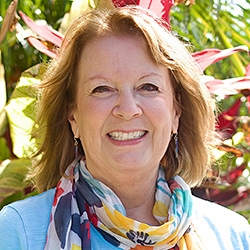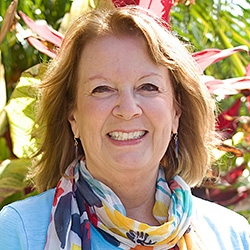

Search Results: self connection
-
Listen to John talk about the inner and outer mediation process, the importance of the "3rd chair," and an experience of working with Pakistani elders.
-
Listen to Robert describe the five core principles of Living Compassion and the relationship of needs to spirituality. Great material for reflection and reference!
-
Jim and Jori Manske offer insight into blame, how it arises and how do we handle being blamed and our own blame of others.
-
Jim Manske offers practices to stay in dialogue without defensiveness, especially when it's difficult. Listen to Jim discuss the refining of our commitment to connection and how to respond to others' defensiveness too.
-
Rodger Sorrow introduces us to "Connection Time," a practice for you and a significant other to deepen, broaden and mend your relationship with each other.
-
Celebrate love with Rodger Sorrow! Listen in as Rodger discusses a range of topics such as defining love, religion and love, and how to handle unloving responses.
-
Explore self-empathy with an exercise to connect more deeply with your needs.
-
Learn to translate judgments into self-awareness to improve listening in business.
-
Delve into the power of forgiveness with Rodger Sorrow! Listen in as Rodger explores 3 areas: asking for forgiveness, when it's hard to forgive, and forgiving ourselves.
-
Join Jori and Jim Manske to explore, learn and practice the art of receiving the word "no," re-framing it from fear into fun.
-
Join Jori and Jim Manske to explore, learn and practice an NVC approach to mourning and celebration.
-
Want to expand your needs vocabulary, and build your capacity to identify needs — even when you’ve been triggered? Check out Mary’s powerful teaching on Self-Empathy.
-
Explore three stages of transition and how connecting to needs brings grounding and clarity.
-
CNVC Certified Trainer Miki Kashtan explains how NVC's OFNR process is a tool to train our consciousness, rather than the "correct" way to speak.
-
CNVC Certified Trainer Miki Kashtan explains how naturalizing NVC language involves self care and begins with accepting what is true in the moment.
-
CNVC Certified Trainer Miki Kashtan offers 3 steps we can take to access and express our deepest authentic expression.
-
This session is from the NVC Academy's 2017 Telethon. Listen in as Mary offers two experiential self-empathy exercises: I Love It When, and What Do I Want / Why Do I Want It. Deepen your ability to connect with self — novel and effective ways to engage the process of Self-Empathy!
-
This exercise will help you resolve situations in which you have two needs which seem to be in conflict with each other, transforming inner conflict into peace.
-
Here are two practices for connecting with "request energy". One of them helps us practice in the moment (7 steps). The other one helps us connect to ourselves (11 steps).
-
True inner freedom arises from self-connection. Without self-connection, we're mostly acting from habits, and those habits do not necessarily attend to our own needs. Here's a practice you can explore in your daily life to deepen your relationship with yourself, and experience true choice and inner freedom.

Quick Links
Subscription Preferences
Stay In Touch!
Looking for ways to keep up with NVC Academy news, get special offers, free resources, or words of inspiration? Here are five ways to stay engaged:

















